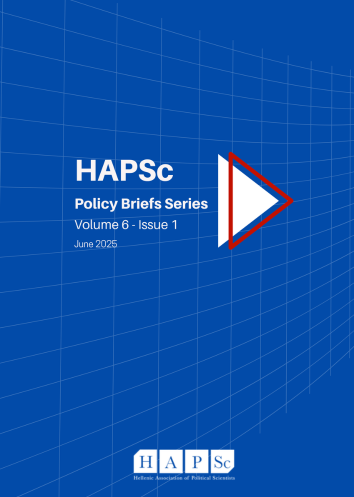A Union in Transition: Reforming Institutions and Embracing Enlargement for Strategic Resilience

Abstract
This policy brief examines the European Union’s urgent need to reform its institutional architecture while strategically managing its next wave of enlargement. In light of global instability, ranging from the war in Ukraine to broader geopolitical rivalries, the EU must address internal challenges such as its democratic deficit, opaque decision-making, and weak public engagement. Simultaneously, external pressures from authoritarian powers like China and Russia amplify the need for a more cohesive and resilient Union. The 2023 Enlargement Package and the Schengen accession of Bulgaria and Romania mark renewed momentum for EU expansion. However, without significant internal reforms, this momentum risks stalling. The brief proposes key reforms: fusing the EU’s dual executive roles into one directly elected president, enhancing the European Parliament’s legislative powers, activating the Lisbon Treaty’s passerelle clauses, and introducing new pre-accession tools such as regional integration hubs and civic fellowships. These measures aim to enhance democratic legitimacy, operational effectiveness, and the Union’s global standing. By aligning its governance with citizen expectations and strategic realities, the EU can not only attract new members but also deepen cohesion among existing ones, ensuring a sustainable, values-driven expansion in a more competitive international environment.
Article Details
- How to Cite
-
Giannopoulou, S. (2025). A Union in Transition: Reforming Institutions and Embracing Enlargement for Strategic Resilience. HAPSc Policy Briefs Series, 6(1), 142–150. https://doi.org/10.12681/hapscpbs.43199
- Section
- Articles

This work is licensed under a Creative Commons Attribution 4.0 International License.
Authors retain copyright and grant the journal right of first publication with the work simultaneously licensed under a Creative Commons Attribution License that allows others to share the work with an acknowledgement of the work's authorship and initial publication in this journal.

